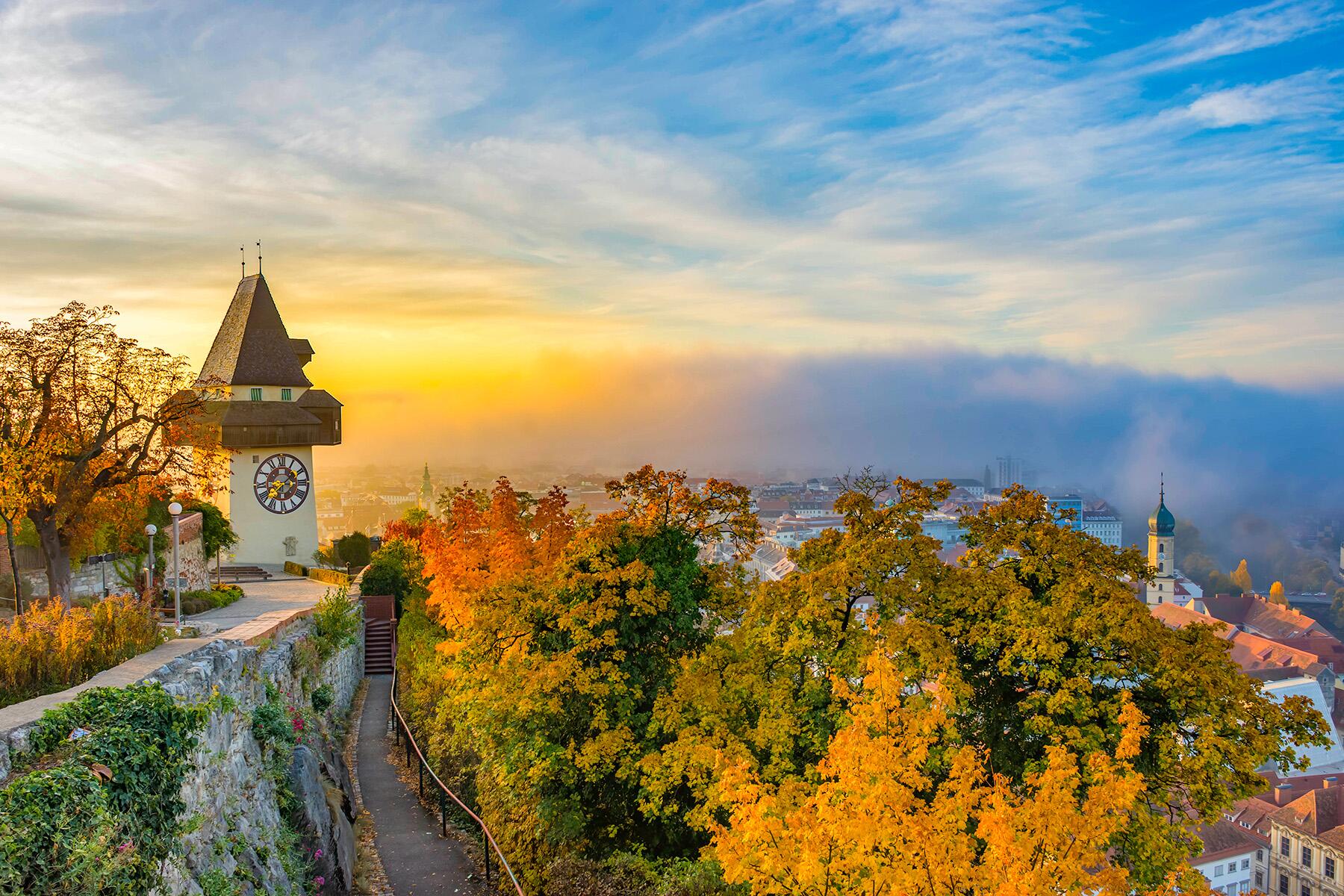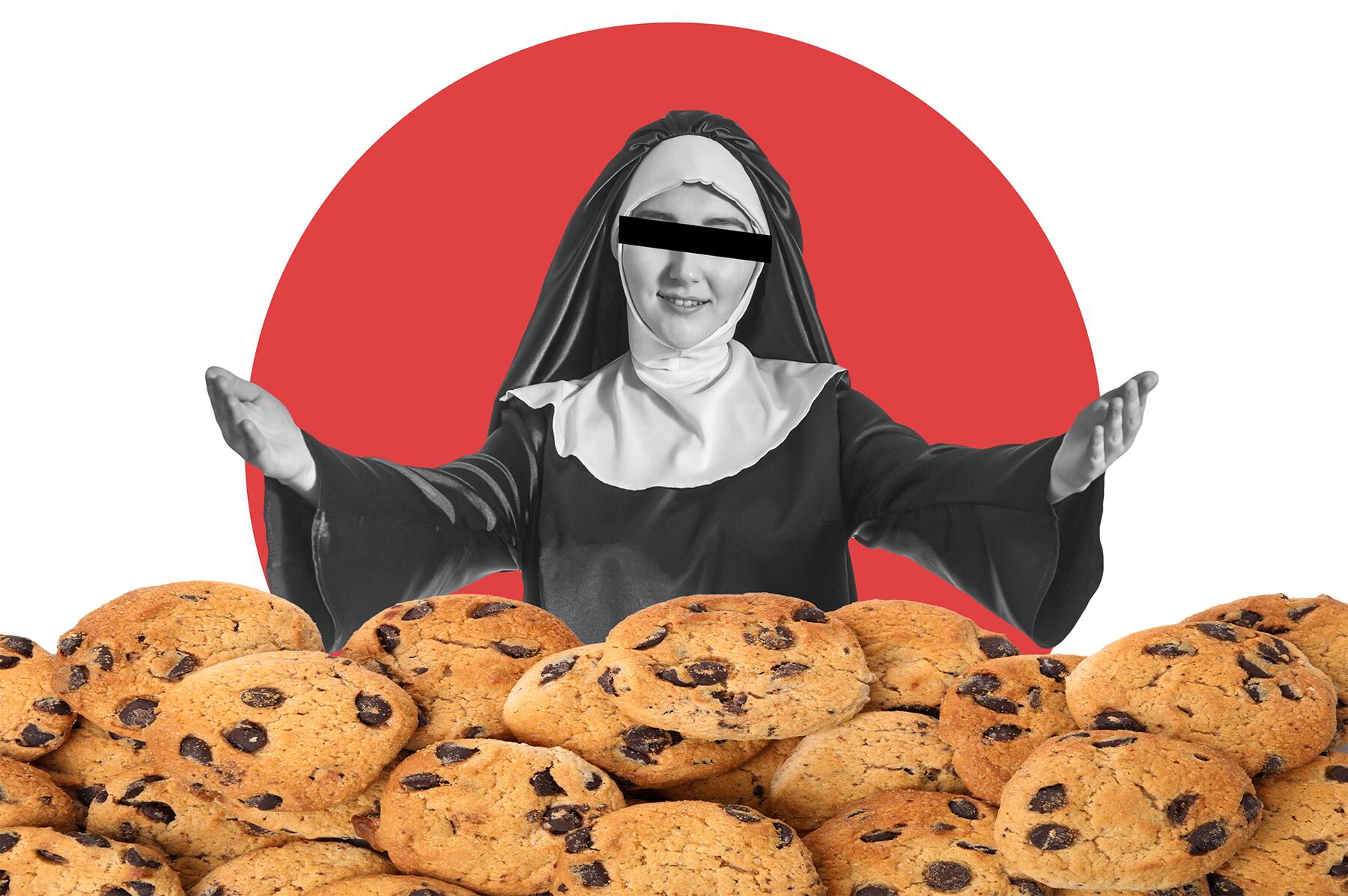It’s a not-so-well-kept secret that a sect of cloistered nuns in Madrid is selling clandestine cookies to the public.
Have you ever met anyone who doesn’t enjoy a cookie every now and then? There’s a texture and flavor of cookie for almost anyone, from savory to sweet and chewy to crunchy. The choices seem endless. Even if you aren’t the type to indulge in a delectable delight, one particular cookie should be on your radar: the not-so-secret cookies of the cloistered nuns of the Convento de las Carboneras.
The Convento de las Carboneras, a convent of cloistered nuns of the Monasterio del Corpus Christi, received its name after an image of the Virgin Mary was found in a donated coal yard (carbonería means charcoal). The blessed image remains in the monastery. The building itself dates back to 1605 and was declared a Site of Cultural Interest in 1981.
Cloistered nuns are no longer found outside the confines of their monastery or convent. But between A.D. 500 and 1200, all nuns were cloistered. (Cloister derives from the Latin word claustrum, or in the plural, claustra meaning to close or place shut-in.) Cloisters were affordable areas for monks to exercise or engage in recreational activities. Over time, the secured walls became a place all clergy members could use, regardless of sex. The nuns reject the distractions of the external world, turning instead to a life of prayer, sacrifice, reflection, charity, and a strict dedication to silence.
Recommended Fodor’s Video
As you can imagine, a secluded and simple life can become more complex when interrupted by the ever-changing world. To earn a living, the silent nuns began selling traditional Spanish cookies. Their cookie business has given the world limited access to experience their lives. And I mean extremely limited. Not only can you not speak to the nuns, but you also won’t even see them.
The cookies started as something special for the neighborhood and the surrounding areas before becoming an unofficial treasure hunt for the greater Madrid area and beyond. So, if you happen to be in Madrid, how do you get your hand on these cookies?
The Hunt for the Secret Nun Cookies
Located in the Austrias barrio of Madrid, the convent and monastery are easy to travel to via public transportation. The closest metro stops are La Latina on Line 5 or Sol that’s accessible using Lines 1, 2, and 3. You can also travel on the local Cercanías train and get off at the Madrid-Sol station. If you’d like to take a more scenic route, the 31, 50, 65, and SE712 buses will get you there as well.
With the convenience of navigation apps, finding the Monasterio del Corpus Christi is easier than ever. Nevertheless, there are still some surprises along the way. The monastery is located where the Plaza del Conde de Miranda intersects with Calle del Codo. Look for a door with a sign that reads “Venta de Dulces,” which roughly translates to “Sale of Sweets.” Next, select the bell labeled “Monjas,” meaning “Nuns.” Politely ask if they are selling sweets today (in Spanish, of course).
INSIDER TIPTry using these Spanish phrases to ask if the nuns are selling cookies: “Hola, tiene dulces hoy?” or “Se vende dulces hoy?”
After you’re let in, follow the signs that read “Torno,” or “Turnstile” until you reach the end of a hallway.
How to Order and Pay for the Spanish Nun Cookies
In the purchasing area, you’ll find a bilingual menu detailing the selection. The cookies (or biscuits, if you speak the Queen’s English) are sold by either half (about 1.1 pounds) or a full kilogram (about 2.2 pounds) in weight. Once you’ve selected the sweets you’d like to order and the quantity, announce it and wait for the nuns to work their cookie magic.
When your order is ready, it will appear on a Lazy Susan turnstile (the aforementioned “Torno”). Again, you won’t see a single nun, so you can practice Spanish free of judgment, perplexed looks, and snickering—even if it’s only to order cookies. Just don’t expect to receive a verbal answer to your questions or comments. The nuns have taken a vow of silence, after all.
When it comes to paying, cash is still king in many European countries, and Spain is no exception. To make it easier for the nuns, try to have exact change. As previously mentioned, your order will appear on the Lazy Susan. Don’t rush to collect the bag; place your cash beside the bag. The torno will go around once more with both the cash and the cookies. The cookies and change (if you have any) will return on the next spin. The process is peculiar, but it ensures you have the correct order and that you won’t mistakenly walk away before paying.
INSIDER TIPAt the time of publication, the price for half kilo orders was either 9 or 10 euros, and the price for a kilo of cookies cost 18 or 20 euros, but naturally, the prices are subject to change.
Assuming all goes well, you’ll have the opportunity to enjoy these secret nun-made cookies with a story so unique that it’ll pique anyone’s interest. Take time to enjoy the beautiful neighborhood of La Latina and the other jewels of Madrid to tick off a few more boxes on your travel list.




I enjoyed your article very much, it's the kind of experience I love on my trips. But I wonder why use the word "sect" in your title. It means religious order only in third place; meaning one and two recall what one usually understands by a sect: 1a: a dissenting or schismaticreligious bodyespecially : one regarded as extreme or hereticalb: a religious denomination